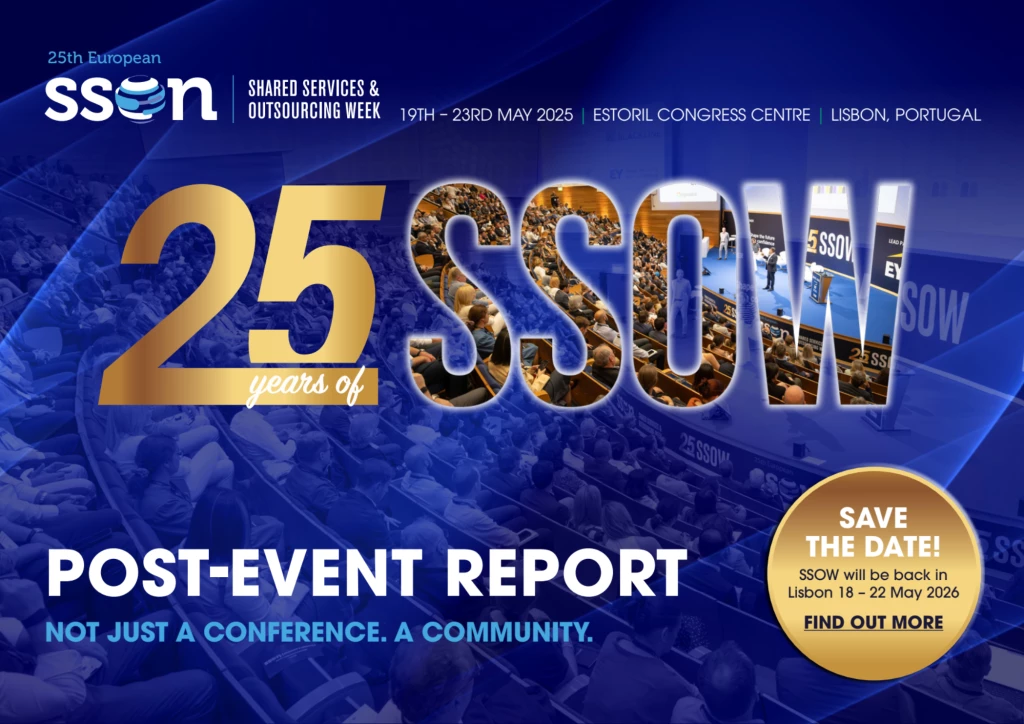A "Cultural Revolution" Drives Integration Across Fragmented Businesses in Nordics: Shared Services
Add bookmarkHow Global Shared Services is Driving Operational Transformation at Getinge Group
SSON asks Niclas Sj÷swård, Senior Vice President, Group Operations at Getinge Group about the Global Shared Services journey
Niclas Sj÷swård was brought into Getinge Group one and a half years ago with the express purpose to design, plan, and implement a global shared services strategy that would transform the company from operating as 220 different businesses into operating as one integrated group for back-office functions, with all the advantages this implies. The time line set was aggressive: just three years. But while it was a tall order, for this veteran of Volvo’s shared services group it's been entirely doable, as he explains to SSON’s Barbara Hodge. Now nearly 18 months into the journey, he shares why Global Shared Services are a good idea, and offers lessons on how to get started.
The Nordics: Hampered by Consensus?
One key challenge that many Nordics-based organisations targeting transformation will identify with is the consensus-driven management that characterises businesses in this region. More often than not, this has led to severely fragmented decentralised operations that, while reacting well to their customers’ needs, are inefficiently run from an operational excellence perspective. This was also the case at Getinge Group, aleading global medical technology company, which prides itself on the support it provides in the area of Infection Control, Extended Care and Medical Systems.
Having grown to more than 220 companies worldwide, Getinge’s executive management realised that its Finance and HR support functions were operating significantly behind industry best practices in terms of cost, quality and compliance. As a result, the executive management sponsored an aggressive shared services implementation, for which they hired Niclas Sj÷swård, a 10-year veteran of Volvo's shared services group. The shared services initiative was supported by the CEO, and the message was driven throughout the organisation loudly and clearly: Join up, or be left behind.
It was this support, first and foremost, that has enabled Sj÷swårdand his team to come as far as they have in just 15 months. What was clear to the executive management as a result of industry benchmarking was that to drive the transformation necessary to hit growth targets, the group would need to build on a centralised shared services engine. Of all the options considered as a solution, only shared services promised to deliver the scale benefits and capture the synergies that the benchmarking exercise had identified.
Getting to One Integrated Organisation
The key target for the executive management, and for Sj÷swård,was to transform Getinge Group from 220 independent companies into one integrated organisation regarding back-office activities. "I had seen it work at Volvo, and I knew it would work at Getinge Group," he explains. "What made it possible at the rate at which we’ve been moving is the commitment, and investment, we’ve received from the executive management."
The aggressive implementation timeline that had been set was a tremendous challenge, not least of all because Sj÷swårdwas conscious of not getting in the way of, or holding up, any existing business initiatives. In the end, what made it possible was the money that the company was willing to invest up front, to secure long term advantages. "Otherwise, there are just too many hurdles to derail a global initiative such as this one," warns Sj÷swård.
Structuring a Global Centre
The Global Shared Services structure was established with a central governance group at headquarters, in Gothenburg, Sweden. In addition, three delivery centres were established in Poland, Costa Rica, and soon to include an APAC centre. While the Polish centre led the initiative for the EMEA region (at present Costa Rica is being implemented in parallel), this was for obvious reasons: Europe represented Getinge’s highest cost base, and therefore also a "burning platform" to address up front.
Choosing the right location was, of course, critical. While Eastern Europe presents a number of opportunities for shared services,Sj÷swård was concerned that – given the relatively mid-size of the centre planned (it is currently at 150 FTEs, soon to be 250) – he needed to be able to tap into a market in which the skills he sought were readily available. This meant that, although Krakow’s slightly higher labour cost put it behind others on the short list in terms of FTE cost, it offered a reliable and "pre-trained" talent pool that would serve the company's needs well.
Starting a Cultural Revolution
One of the challenges facing Nordic businesses is the fact that the consensus driven management style that characterises them leads to a certain lack of discipline when it comes to support processes: Different entities develop different policies based on different systems etc. etc. For a shared services initiative, restructuring this landscape represents a significant uphill battle. "There was no group template to apply," explainsSj÷swård.
Introducing shared services, therefore, amounts to somewhat of a cultural revolution. Bringing in an outsider to lead this may work well for some organisations,Sj÷swård concedes, as in his case he had witnessed a previous implementation and was confident about the success of the model. "I suppose you could say that I engendered confidence in the model," he agrees.
Nevertheless, it has not been without its challenges: "Although all our traffic lights are green at the moment, I know that there are plenty of struggles happening under the surface" explainsSj÷swård. "What has helped us enormously was that shared services represented a fifth of the transformation strategy that the CEO was pushing through. The GSS led corporate communication agendas. The message from the CEO was effectively: ‘If you want to get additional resources you'll have to join us in this venture’."
Maintaining Speed
The biggest challenge to Sj÷swård and his team is to maintain the high speed of implementation without jeopardizing other business initiatives. This requires a careful balancing of timelines, priorities, and, above all, close collaboration with individual businesses, he explains:
"If we know one of the businesses is about to go through a merger or acquisition, we adjust our roadmap accordingly – either bring it forward or push it back – in support of that business’s immediate targets," he says. "But maintaining the momentum is important as our roll-outs across EMEA, the Americas, and soon also Asia depend on the successful completion of each previous stage. As such, we cannot afford to falter.
Lessons
While Sj÷swård was able to leverage a lot of what he had learned and seen at Volvo over the past decade, each company is unique and he readily concedes that the success or not of a shared services implementation hinge on a lot of factors. Most significantly enabling a launch, however, are the following three things:
- Ensuring that the shared services project is integrated into the corporate strategy and its directives
- Planning carefully and meticulously upfront on the basis of hard facts
- Letting the data drive the project
Shared Services: a Magic Model for the Nordics?
While Nordic companies may have been somewhat slower, in general, to take up shared services as a model,Sj÷swård is getting more and more calls from other companies in the region who want to discuss how it's done.
[eventpdf]
European-based companies will always suffer from a higher cost base, he explains, which is driving much of the interest for nearshore or offshore-based services delivery centres. On the other hand, the more conservative management style, based – as already mentioned – on a need for consensus, tends to work against the standardisation and transparency implied in shared services.
It's the quick payback that nearshore centres can achieve which may well swing the decision for companies in the end, explains Sj÷swård. Certainly, for anyone wanting to compete on the global market, getting costs, supply chain, and efficiency ratios under control will be a requirement.





















